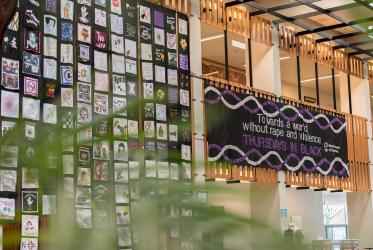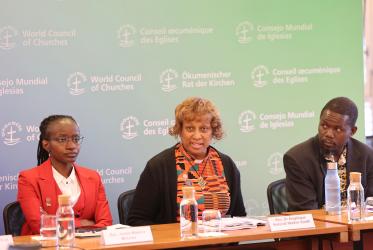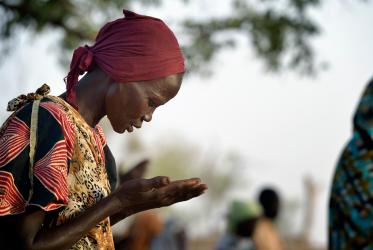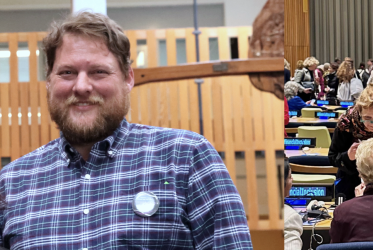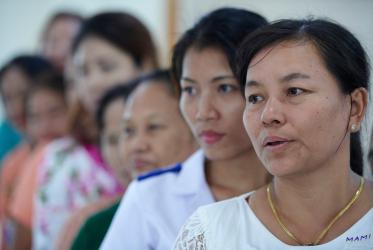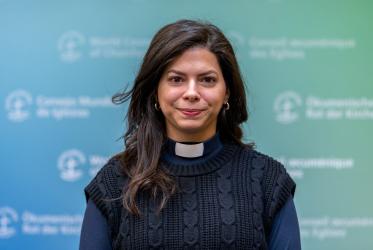Speaking in Lviv, Ukraine on 30 August, World Council of Churches (WCC) deputy general secretary Prof. Dr Isabel Apawo Phiri presented a paper on ”Women and Ecumenical Engagement for Peace in South Sudan,” reflecting on the experiences of a Pilgrim Team visit by the WCC in May 2018.
Phiri’s presentation was part of the 11th International Conference of European Society of Women in Theological Research, entitled “Empowering Women in Conflict: Ecumenical Engagement for Peace and Justice” and taking place at the Faculty of Philosophy and Theology of the Ukrainian Catholic University.
“Over a long period, the WCC has worked with the Council of Churches in Sudan and South Sudan, the All Africa Conference of Churches, the Ecumenical Network of Sudan and the Ecumenical Network of South Sudan (ENSS) to create space for dialogue between opposing forces and work for peace, security and reconciliation,” said Phiri, who reflected both on the history of ecumenical engagement for peace and justice, and the many concrete challenges currently faced by people and churches in South Sudan.
Phiri described how the long periods of civil war has contributed to deep divisions among people and peoples in South Sudan, but also how churches create spaces for dialogue and prayer together, across tribes.
“Up to now the churches are still working together to protect the inherent dignity of every Sudanese and South Sudanese following many years of cycles of civil wars,” Phiri said and added, “When the World Council of Churches May 2018 Pilgrims visited Juba in South Sudan one phrase we heard again and again is ‘I was born in war, grew up in war, and became a mom and grandmom in war.’”
Yet as has been articulated in the Just Peace Companion, Phiri said, “the ecumenical call for just peace points to the importance of the biblical truth that justice and peace belong together.”
“Today, one sees the work of the National Women’s Programme of the South Sudan Council of Churches as a contribution to the reconstruction of the role of women in South Sudan. This programme has earned the respect of all warring sides in its efforts to stop the long winded civil wars and lay the foundation for peace that is sustainable,” said Phiri.
Phiri said the programme “is well known for using prayer as a tool for bridging the hatred among the tribal and political divides by organising monthly women national prayers. The prayers bring together women from opposing sides of the war and from different denominations. This is crucial because the war that started in 2013 is perceived as dividing the churches on ethnic lines.”
“It is this spirit of resilience and resistance we saw in the women of South Sudan when we met them at the Council of Churches in South Sudan in May 2018, which motivated the Global Ecumenical Women Pilgrims to mobilise and accompany the people of South Sudan through weekly prayers as part of the Thursdays in Black campaign,” Phiri then concluded.
In addition to the Thursdays in Black, the WCC will accompany the people of South Sudan through a Trauma Transformation and Healing project starting in 2018.
Thursdays in Black: Pilgrim Prayers for Women in Conflict Situations
South Sudan Council of Churches: “peace will return to our country” (WCC press release of 20 August 2018)
Fellow pilgrims share stories of transformation (WCC press release of 18 June 2018)
When you have nothing, you give your heart (WCC press release of 9 May 2018)
